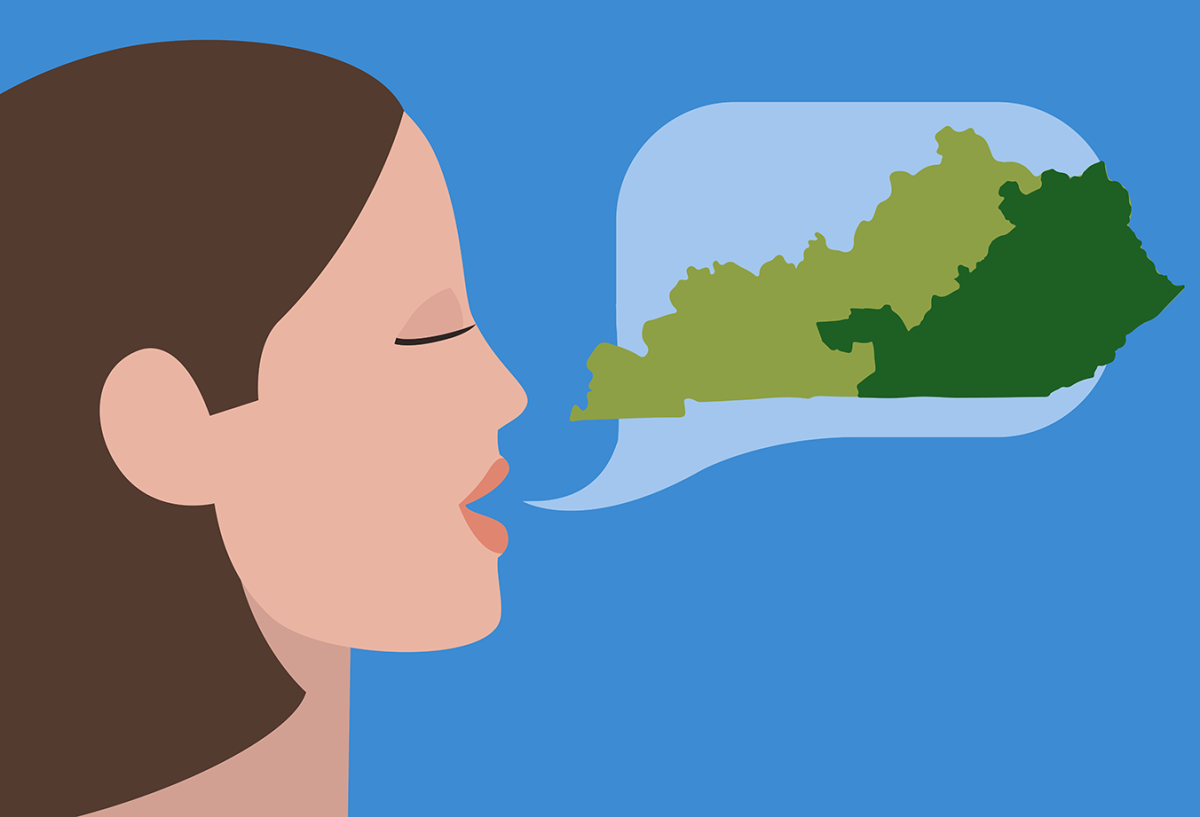In the gift shop of some museum in Washington, D.C. that couldn’t pique the interest of my 6th-grade brain, I started a conversation with another shopper.
She seemed sweet — a local who wanted to get a T-shirt for her son who attended college in another state, a keep-sake to remind him of where he came from.
We continued making small talk as I helped her find the perfect shirt.
She abruptly stopped our conversation. “Where are you from?” she asked.
“Southeastern Kentucky,” I replied, not knowing what that had to do with the shirt I had pointed out to her.
“I thought I heard that.” Her expression suddenly turned sour. It was at this moment that I realized she was referring to my accent.
“Have you ever thought about moving up here? It just seems like a shame for someone with so much potential to be stuck down there,” she said to me.
She turned her nose up when saying “down there,” as if someone had just dumped sewage at her feet.
I politely excused myself from the conversation, waving into the distance to pretend I was heading toward a classmate.
I walked away from that conversation with a feeling of shame. Did my accent really say that much about me? Does everyone I speak to think the same as that stranger who knew me for all of five minutes?
This wasn’t the first time someone had tried to make a joke about where I am from. However, it was the first step of a slippery slope I trekked for the next 10 years as I tried to erase any connection between me and the Applachian mountains.
Code switching is the process of changing your vernacular based upon certain social situations you find yourself in. When with family and childhood friends, I kept my natural accent.
However, when around new people, I pay very close attention to the language I use and how I pronounce certain words.
I am not the only Appalachian to try and change their accent. Ava Dixon recalls her history with code switching in an article for 100 Days in Appalachia, saying, “I would never be caught saying ‘holler’ instead of ‘hollow.’ I would never say ‘y’all’ instead of ‘you all.’ I felt like I had to prove that I had value despite my rural upbringing in Eastern Kentucky.”
When reading Dixon’s words, they felt like my own. It shows exactly how universal this experience is for Appalacians.
I have also had a lot of people tell me that this is all in my head. They tell me that no one actually thinks anything negative about Appalachians.
However, there are plenty of media that perpetuate the negative stereotype of Appalachians.
In a piece for Southern Cultures, Meredith McCarroll addresses the effects of media portrayals of Appalachians have, stating, “Television shows, movies and cartoons rely lazily on the assumption that viewers will associate a southern accent with a lack of intelligence. It is still acceptable in popular discourse to mock ‘rednecks’ and ‘hillbillies.’”
I recall a popular skit on Disney Channel’s “Sonny With a Chance” in which the characters would use some exaggerated Southern accent and sell roadkill on the side of the highway as food.
Anytime my dad caught me watching the skit he would make me change the channel. As a kid, I never understood why he disliked it so much.
As an adult, I can’t believe Disney approved that skit.
And even after all these years of training myself on how to speak, my accent still slips into some of my conversations.
“Oil” is one word that often draws unwanted attention.
About a year ago, I slipped up and used the Appalachian pronunciation of “oil” in front of my coworkers. One of them proceeded to imitate my accent, and continues to do so to this day.
I have repeatedly told him to stop, but for some reason my Appalachian accent seems to provide endless entertainment for him.
I am not sure what snapped, but I think this is what has made me change my mind about my accent.
My accent does not diminish my intelligence, nor does it give anyone permission to treat me like a caricature for their personal entertainment.
I will not be ashamed of Appalachia anymore. I am from Southeastern Kentucky, and it has made me who I am. I will no longer sit by as others further the stereotype of “barefoot, unintelligent hillbillies” in Appalachia, nor will I hide my accent to blend in.











































































































































Duane Stewart • Mar 30, 2024 at 4:32 pm
Great article. Being from SEKY, I feel the effects of my accent everyday! I usually laugh it off. I sometimes enjoy the suprising look on people’s face when I outsmart them. I a proud Hillbilly and will never hide it. In all reality, if you research the dialect of our roots, it comes from Scotch/Irish decent and some of it is correct with a little twang.
Alan Huelsman • Jan 22, 2024 at 8:39 pm
I am 71 years old. I have been caught in situations where people feel the need to poke fun of my accent. I guess it makes them feel better. i have no problem politely challenging their thinking. I use to let it go but I feel if you don’t stand up/challenge people when they make ignorant assumptions, then you are implying agreement. By the way, I am proud of my unique accent.